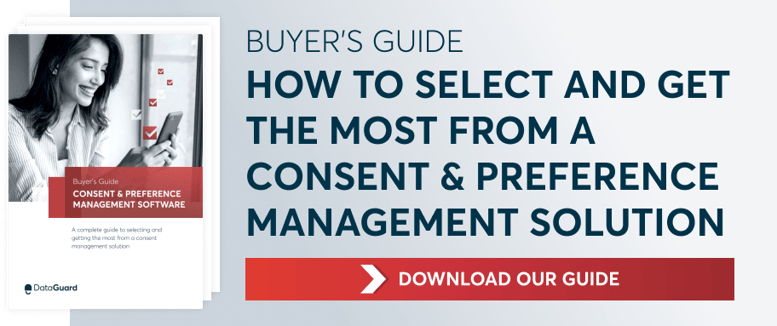We live in a world where data has the Midas touch. It has become intertwined within our modern way of life. As a result, we are starting to reach a tipping point. We are living more of our lives online, and the current pandemic has only accelerated that even further. Your digital footprint is becoming your identity, and with that it brings an emotional attachment to keeping it safe and secure. As these concerns become more widespread, companies are coming under increased scrutiny over what they are doing with that valuable data and how a consumer will benefit from it.
What you need to know in a nutshell
- Bad data practices are being recognised and penalised by the ICO and other European Supervisory Authorities
- Consumers want transparency and honesty over how their data is used
- Brands need to implement good data privacy practices to gain a competitive advantage
In this article
Bad practices
We are seeing ever-increasing examples of bad practices and/or data breaches, with the Information Commissioners Office handing out more fines, countries arguing over data scraping, and concerns about data privacy. High profile examples of this include America’s view on TikTok (under the Trump administration) and the Cambridge Analytica scandal. Consumers are starting to take notice of how valuable their data really is and how it needs to be protected, secured, and used properly.
Businesses need to pay attention on how and who they can communicate with, gone are the days when you could communicate with anyone who had contacted you. Now, you must make sure you have the right lawful bases. Sending marketing information under the umbrella of legitimate interest or service messaging has caused fines for so many companies, (Amex recently fell foul of this). Understanding what you can and cannot do is critical, the role of Data Protection Officer (DPO) has previously been undervalued, but it’s the line of defence and guidance that all businesses need to navigate the future landscape.
A consent and preference management software can help to capture consent and customer preferences compliantly. This makes life easier when you have to decide how and who you can communicate with.
In our buyer's guide for a consent and preference management platform we give an overview on how to select and get the most from such a solution.
Consumer demand
Consumers are also demanding personalised services, with a virtual assistant to help them navigate the online world and pick items that are tailored to their needs. But there is a fine line between that virtual assistant and creepy tracking – we have all had examples of thinking about a product or service and suddenly seeing it appear in an advertisement bar when we do not even remember asking for it. Building a trusted data relationship is key. You must be open and honest about how you use your consumers’ data and what value they will receive.
Historically, consumers have been fickle with data breaches because their data footprints were smaller than they are now. Some businesses, such as TalkTalk, would have taken a hit on a data breach and then be able to recover. But those days are long gone – data protection and security are now big business. If you haven’t got your consumers’ consent or trust, then the data you own will have little value in the long run, and you run the risk of being heavily fined if you misuse it.
Understanding the value exchange
Businesses now look to create and build data strategies that include an open and honest relationship with their consumers in terms of what they get out of the data exchange. As in any good business, everyone needs to be a winner. This means building multiple streams to support those who want personalised services and are willing to give over that valuable data, as well as those who do not want to share their data and just want good generic service.
Businesses need to recognise this emergent opportunity and take it seriously, consumer data should no longer be taken for-granted but instead valued and cherished, as out of this will come new emergent trends or opportunities such as Genera8, recently pitching on the BBC’s Dragon’s Den in April 2021, for funding for their tech that allows people to earn points when their data is tracked online through cookies. It’s shaking up the advertising industry as it’s people back control over the use of their personal data.
Gone are the days of collect everything and anything, now data has a value, and it is being recognised as an asset.
Conclusion
We live in a world where data gives businesses that important advantage, data privacy and consumer consent become the key to opening the door in building a brand that lasts with valuable consumer trust and that important data. We must also be mindful that as the world evolves, so too does the marketplace, and the consumer’s needs will change accordingly; this is where data assets should bear their ripest fruit.







